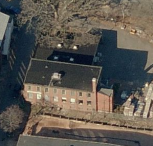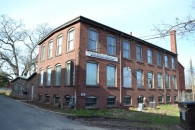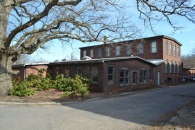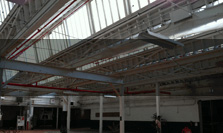Mill Record Manchester
RETURN TO ‘FIND MILLS’Disclaimer: Content for these properties was compiled in 2014-2017 from a variety of sources and is subject to change. Updates are occasionally made under Property Information, however the Connecticut Trust for Historic Preservation (dba Preservation Connecticut) makes no representation or warranty that the information is complete or up-to-date.
- Complex Name (Common)
- Norton Electricrical Instrument Co.
- Complex Name (Historic)
-
- Norton Electricrical Instrument Co.
- Address or Location
- 71 Hilliard Street, Manchester
- County
- Hartford
- Historic Designation
- Associated Mill Community
- n/a
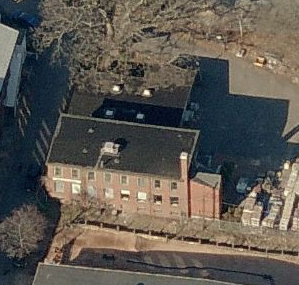
- Historic Information
Companies Associated w/Complex
- Mather Electric Co. ca. 1900-ca. 1901
- Norton Electrical Instrument Co. ca. 1901-ca. 1972
Use (Historic)
Largest Documented Workforce
47 (ca. 1944)
Historic Narrative
The Norton Electrical Instrument Company was established ca. 1895 by Charles E. Norton, a machinist by trade. Norton was trained in his family’s machine shop – this founded during the 1870s and originally located on Hudson Street in Manchester – and by the early 1890s was employed by the Mather Electric Company on Hilliard Street. By 1896, Norton had struck out on his own. That year he is listed in local directories as an electric instrument maker conducting work in a space rented from Mather Electrical. The Norton Electrical Instrument Company was formally incorporated in 1901 with $10,000 in capital. It appears that at this time Norton purchased the small one-story shop that he had previously leased from Mather Electrical, and soon set about erecting a new two-and-a-half-story factory adjacent to it. These two buildings housed all of the company’s operations, which centered around the manufacture of intricate electrical regulating and measuring instruments. These were used in a variety of applications, most notably in controlling heavy machinery. During the Second World War, at which time the firm employed upwards of 47 workers, the company dedicated all of its production to the war effort. This included the manufacture of various gauges and instruments employed on the nation’s submarines, a device used to defeat the magnetic mines frequently placed in naval shipping lanes by the German navy, and components incorporated into the atomic bomb. Charles E. Norton was joined by his son, Ralph P. Norton, in management of the family firm around 1919. Charles served as president, while Ralph held the dual role of secretary and treasurer. The elder Norton died in 1923, at which time the presidency of the company passed to his wife Harriet. Ralph P. Norton assumed the presidency after Harriet died in 1954, and served in this role until his own death in 1969. The Norton Electrical Instrument Company operated for several years after the death of Ralph P. Norton, but eventually closed its doors during the 1970s. The firm’s plant has since been occupied by a commercial tenant.
- Architectural Information
Number of Existing Buildings
Two (2) primary blocks.
Dates of Construction
ca. 1900, ca. 1901.
Architect
n/a
Builder
n/a
Building Type
Architectural Description
The former Norton Electrical Instrument Company plant is comprised of two adjoining blocks set back roughly 275’ north of Hilliard Street and roughly 940’ west of Hilliard Street’s intersection with Main Street. The primary building is a two-and-a-half-story, 33’ x 65’ red brick structure erected ca. 1901. This has a brick foundation, raised basement, segmental-arched window openings with brownstone sills, and a low-pitch gable roof with exposed rafter tails. The building is four-bays wide and eight bays deep. The original four-over-four double-hung wood sash windows remain on the basement level, however, the upper-story fenestration has been replaced. The ca. 1901 building adjoins an earlier one-story brick block on its north elevation, this built ca. 1900 and measuring roughly 47’ x 58’ overall. The latter building has a mix of rectangular and segmental-arched window openings and a low-pitch gable roof. All of the original windows have been replaced. The plant’s primary entry is located between the two blocks and is accessible from the plant’s west elevation.
Exterior Material(s)
Structural System(s)
Roof Form
Roof Material
Power Source
Condition
Fair
Condition Notes
The factory is in overall fair condition. Although sections of the buildings show some staining and deterioration along their exterior walls and the original windows have generally been replaced the majority of the plant appears to be structurally sound and adequately maintained.
- Property Information
-
Specific Location
Rear of north side of Hilliard Street and south of railroad west of Main Street
Adjacent To
Exterior Visible from Public Road?
Yes
Parcel ID / Assessor Record Link
- 75/2920/71 / Link →
Acreage
0.67
Use (Present)
- Sources
-
Form Completed By
Lucas A. Karmazinas
Date
04/13/2015
Bibliography
- List of Connecticut Manufacturers, 1922, 1924, 1930, 1932.
- Directory of Connecticut State Manufacturers, 1936, 1939.
- Industrial Directory of Connecticut, 1947.
- Register of War Production Facilities in Connecticut, 1951.
- Map of Hartford County, H & C.T. Smith, 1855.
- Atlas of Hartford County, Beers, Baker & Tilden, 1869.
- Sanborn Map Company, 1901, 1969, 2011.
- Hartford Courant, 1907, 1922, 1923, 1929.
- History of Manchester, Connecticut; Spiess, Mathias, 1924.
- A New England Pattern: The History of Manchester, Connecticut; Buckley, William E., 1973.
- Historic Resource Inventory of Manchester, 1998.
- Representative View(s)Click on image to view full file
